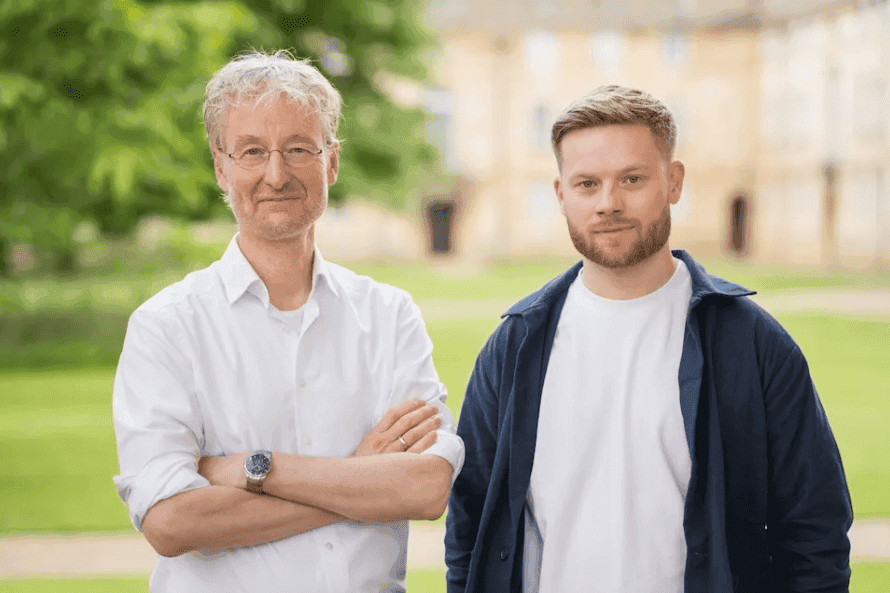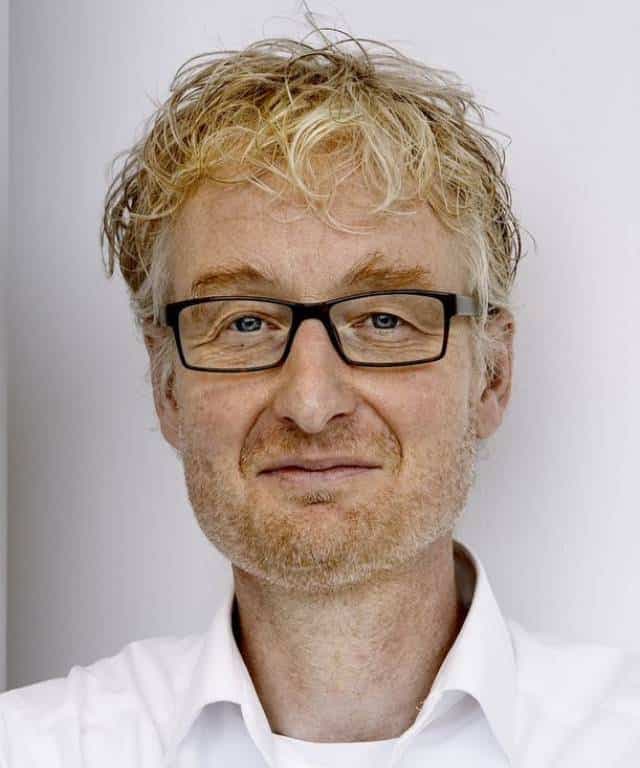Investment of the month: CuspAI develops search engine for molecules that can extract CO₂ from the air
Each month we interview a startup or company that received an investment in recent times. This month: CuspAI.
Published on July 1, 2024

As editor-in-chief, Aafke oversees all content and events but loves writing herself. She makes complex topics accessible and tells the stories behind technology.
Earlier this month, Amsterdam-based CuspAI raised $30 million in seed capital. Its mission is clear: Use AI to find new materials to combat greenhouse gases. At the helm are Max Welling and British chemist Chad Edwards. IO spoke with Welling about his startup, his desire to make an impact, and the technology behind CuspAI's innovation.
One day a week, he works as a professor of machine learning at the University of Amsterdam and four days a week for his startup. That's where everything comes together. "I started in physics, switched to machine learning, and ended up back in chemistry and physics. In the first part of my career, I worked on theoretical research and wrote a lot of papers. In the last 15 years, my work has been making a much more direct impact. CuspAI is the culmination of all that work; I want to make it work."

What does CuspAI do?
"Our technology mission is to build a platform where companies and researchers can find new materials using the latest AI and machine learning technology. You should think of it as a kind of molecular search engine: you put in a query - 'I want material X with properties A, B, and C.' Then, based on AI and chemical models, the machine starts calculating and suggesting materials. At the end of this process, you will have a list of materials that meet your requirements. "We focus on metal-organic frameworks (MOF) first," he says.
Why did you specifically choose MOF materials?
"That choice consists mainly of a social component. We want to contribute to socially relevant things. We can use MOF to do many good things: filter carbon dioxide from the air, store hydrogen, separate gases, and do catalysis. Initially, CuspAI is focusing on the carbon capture part.
The choice also has some technical reasons; you can optimize these types of materials, and you can use many possible atoms. Machine learning models can work well with it. "So with that, this material is within the range of things machine learning can do well now."
Where does CuspAI stand at the moment?
"So we just finished the first investment round and are assembling a team. That should be complete by September 1, and then we can start. The technology we are developing has yet to exist, but we plan to enter the market soon. For example, we have a partnership with Meta, among others, and we are talking to several chemical and carbon capture companies. We are building the platform, so they have to start using it. In about a year, CuspAI should be fully functional. In addition to the team, we are also investing in computing power. The simulation of gigantic numbers of combinations of molecules requires an awful lot of computing power."
How difficult was it to raise $30 million for a technology that doesn't exist today?
"Actually, not very difficult. When the quantum computer was proposed, it needed to be clarified whether that would work. At the same time, our concept is something that you can say with certainty that in six months, something will be there. The question is, though, how big is the market? How many other companies are doing this, and are we ultimately the company that can do this best? It is so exciting. I really, really want to make it a success."
When is your mission accomplished?
"When we are the best at generating molecules with a computer, then also when you synthesize them in a lab, do what we predict. When we collaborate with large companies that want to produce the molecules on a large scale, they find their way into carbon capture machines and other applications that combat climate change."
